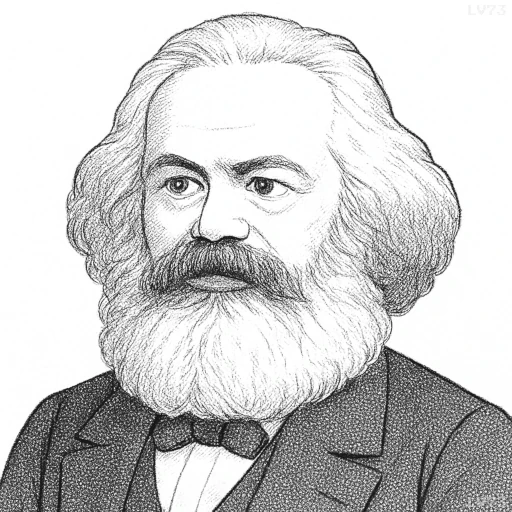“Democracy is the road to socialism.”

- May 5, 1818 – March 14, 1883
- Born in the Kingdom of Prussia (Germany)
- Philosopher, economist, political thinker
table of contents
Quote
“Democracy is the road to socialism.”
Explanation
In this quote, Marx suggests that democracy—specifically political democracy, where citizens have a say in their government through free elections and participation—is an essential pathway to achieving socialism. For Marx, democracy provides the necessary conditions for workers and the oppressed classes to organize, voice their demands, and ultimately take control of political power. In a democratic system, the working class can challenge the existing capitalist system and push for reforms that align with the principles of social justice, equality, and collective ownership. Democracy, in this sense, is not merely about formal elections or civil liberties, but about the empowerment of the working class to transform society into one where the means of production are collectively owned and wealth is distributed according to need.
Historically, Marx believed that the capitalist class often used bourgeois democracy—a form of democracy controlled by the capitalists—to maintain their power, despite the fact that many democratic ideals such as equality and freedom were supposed to benefit all people. For Marx, true democracy could only exist once the capitalist system was overthrown, and the working class had the means to reshape society to serve the needs of the majority, not just the wealthy elite. In this way, Marx saw democracy as a necessary but not sufficient condition for the development of socialism. It was only through democratic processes that the proletariat (working class) could organize politically, overthrow the bourgeois state, and replace it with a dictatorship of the proletariat, a transitional stage on the way to a classless, socialist society.
In modern contexts, this quote has been interpreted in various ways by socialist and leftist movements. Some see democracy as a tool to challenge capitalism and bring about socialism through peaceful reforms or electoral means, while others argue that a bourgeois democracy (capitalist democracy) cannot fully achieve socialism, as it is inherently designed to protect the interests of capital. The role of democracy in achieving socialism is still debated, especially in countries where authoritarian regimes or capitalist elites seem to suppress or undermine democratic processes. However, Marx’s quote underscores the idea that democracy is an important instrument for the working class to use in the fight for social transformation and the creation of a more just and equal society.
Would you like to share your impressions or related stories about this quote in the comments section?

